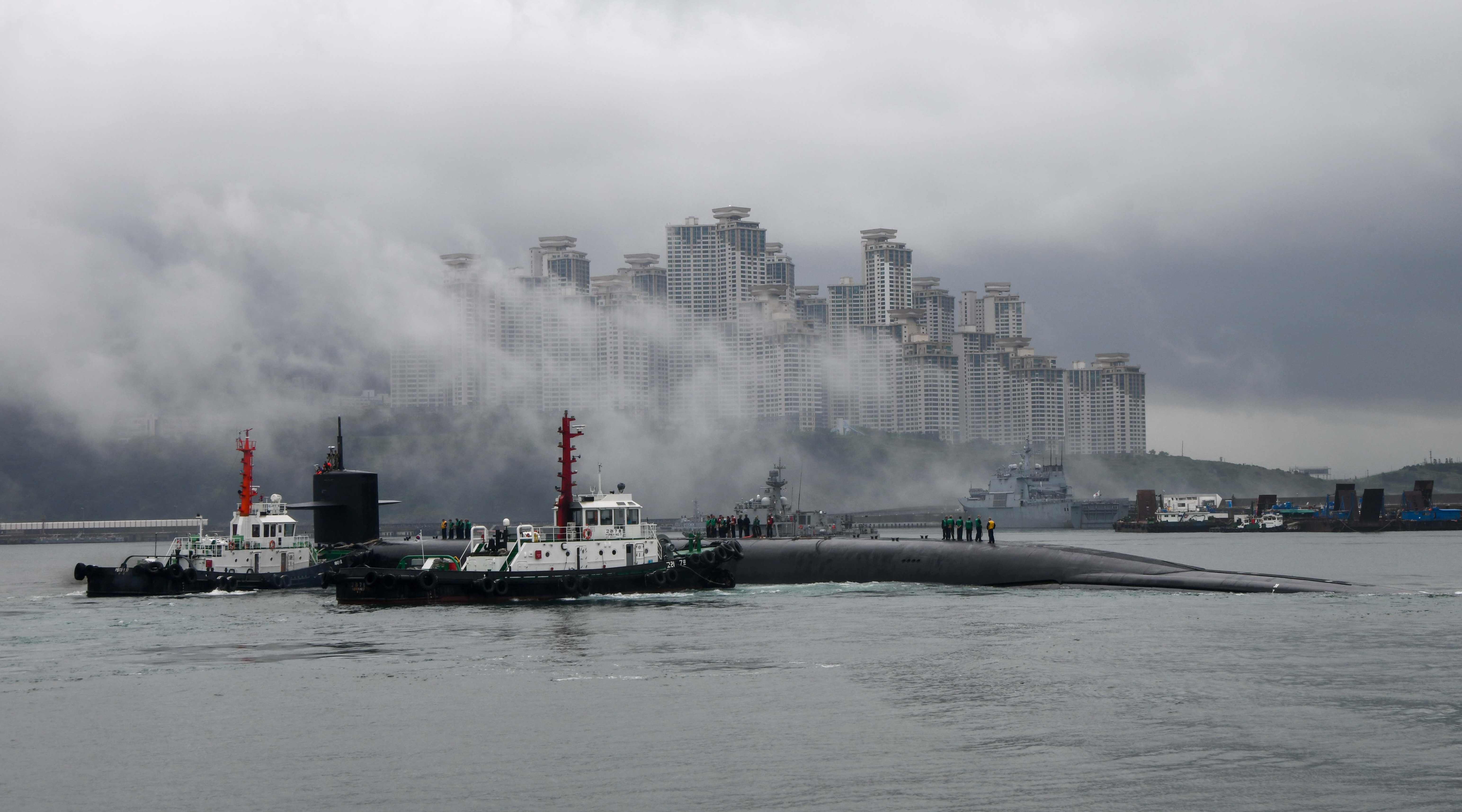
Allies and partners want reassurance that Washington’s nuclear umbrella remains in place as China intensifies “one of the largest nuclear build-ups in history” and North Korea’s behavior becomes increasingly provocative, now sending weapons and ammunition to Russia, a senior State Department official said Wednesday.
Kurt Campbell, deputy secretary, told a Hudson Institute audience that the United States’ message, first to South Korea, and then others, notably Japan, is “the nuclear umbrella extends clearly as in the past.” He added that commitment has bipartisan support in Congress.
The commitment to deterrence “is the central feature of maintaining peace and security,” said Campbell. He noted that as Beijing and Pyongyang have added capacity and capability in their nuclear arsenals, Moscow continues to threaten to use nuclear weapons on the Ukrainian battlefield.
At a joint press conference earlier this month with Japanese Prime Minister Fumio Kishida, President Joe Biden called the 70-year-old alliance between the two nations “a beacon to the entire world” of working together on issues from security to technology exchange and trade.
At the Hudson event, Campbell termed the alliance “our most important bilateral” relationship. He added Japan wants some “rethinking” on priorities and operating concepts when decisions on security are made.
He was referring to the extended deterrence and operations planning arrangements agreed to in an earlier meeting between President Biden and Korean President Yoon Suk Yeol. Biden called the deterrent commitment “ironclad,” and last year the Navy’s USS Kentucky (SSBN-737) made a port call at Busan to reinforce closer cooperation on security. It was the first such visit to Korea by a ballistic-missile submarine in 40 years.
He added that allies and partners, in addition to Tokyo and Seoul, have increasingly demanded to be treated as equals in working with the United States on security, technology and regional economic development.
Campbell also said that the April meeting between Fushida and Biden, who were joined the next day by Philippine President Ferdinand Marcos Jr., “highlighted a shift in Japanese strategic view.” As Kishida told a joint session of Congress, that view included Beijing’s threats to take over Taiwan by force and its claims on most of the South China Sea. He also underscored the effect the Middle East with the Israeli-Hamas war, and in Europe with the Russian invasion of Ukraine were having on Tokyo and the broader Indo-Pacific.
He called the rapprochement between Tokyo and Seoul “extremely important for the future.” Campbell praised Kishida’s and Yoon’s courage for agreeing to meet at Camp David last summer to resolve trade and security differences that threatened the exchange of intelligence among the three allies concerning North Korea and China.
“It is a major beachhead that needs to be reinforced.”
Bitter animosity dates back into the early 20th century, when Japan turned Korea into a colony and Japan’s treatment of Korean women, especially, during World War II.
Biden at Camp David said, “We’re elevating our trilateral defense collaboration to deliver in the Indo-Pacific region. That includes launching annual multi-domain military exercises, bringing our trilateral defense cooperation to an unprecedented level.”
The United States and other nations should “elevate and celebrate” this new level of trust and cooperation between two long-time antagonists. Campbell acknowledged that Kishida and Yoon had seen drops in public approval ratings in the past year. He added that the two leaders, with the United States in the background, have taken positive steps to institutionalize this cooperation.
“After the Camp David summit, we have a role and a voice [to] keep things on a positive trajectory.”
Campbell said other steps include technology sharing and the U.S. taking new approaches to coproducing weapon systems with allies such as Japan, Korea and Australia
“The United States can learn from Japan in dealing with the Global South,” especially in realizing how the needs of nations like the Pacific Islands differ widely from those in Africa and South America, and what can be done with those countries.
With the Pacific Island nations, Campbell said internet connectivity “would be near the top of their list of priorities.” Tokyo, Washington and several other nations are working with the Pacific Islands to extend connections to stabilize connectivity, which would allow for more economic development and better educational opportunities and bolster their security to curtail illegal fishing and counter China’s active political and security presence.
In 2019, Solomon Islands cut ties with Taiwan to recognize China, and three years later signed a security agreement with Beijing. Most of the details remain unknown, besides a naval basing agreement. The two moves raised concerns in the West over China’s ambitions in the Pacific region. Solomon Islanders will go to the polls this month and the security agreement is a top campaign issue.
China announced it was committing more than $300 million to the Solomons following the break with Taiwan.
USNI News reported last April how the national government worked with China to push back elections to 2024 to further erode democratic institutions and norms.
Japan this week announced plans to extend the stays of its mobile assistance coast guard teams in the Marshall Islands and Micronesia to help those nations’ maritime forces patrol waterways contested by Beijing.
Campbell added that following Japan’s lead, Korea and Australia have stepped up their assistance efforts among the island nations. China has in recent years made significant gains in winning influence there, starting with development and infrastructure assistance.
He acknowledged Japan’s early championing of the idea of a “free and open Pacific,” now a standard phrase used by U.S. diplomats and military officials in describing U.S. actions in the region.





